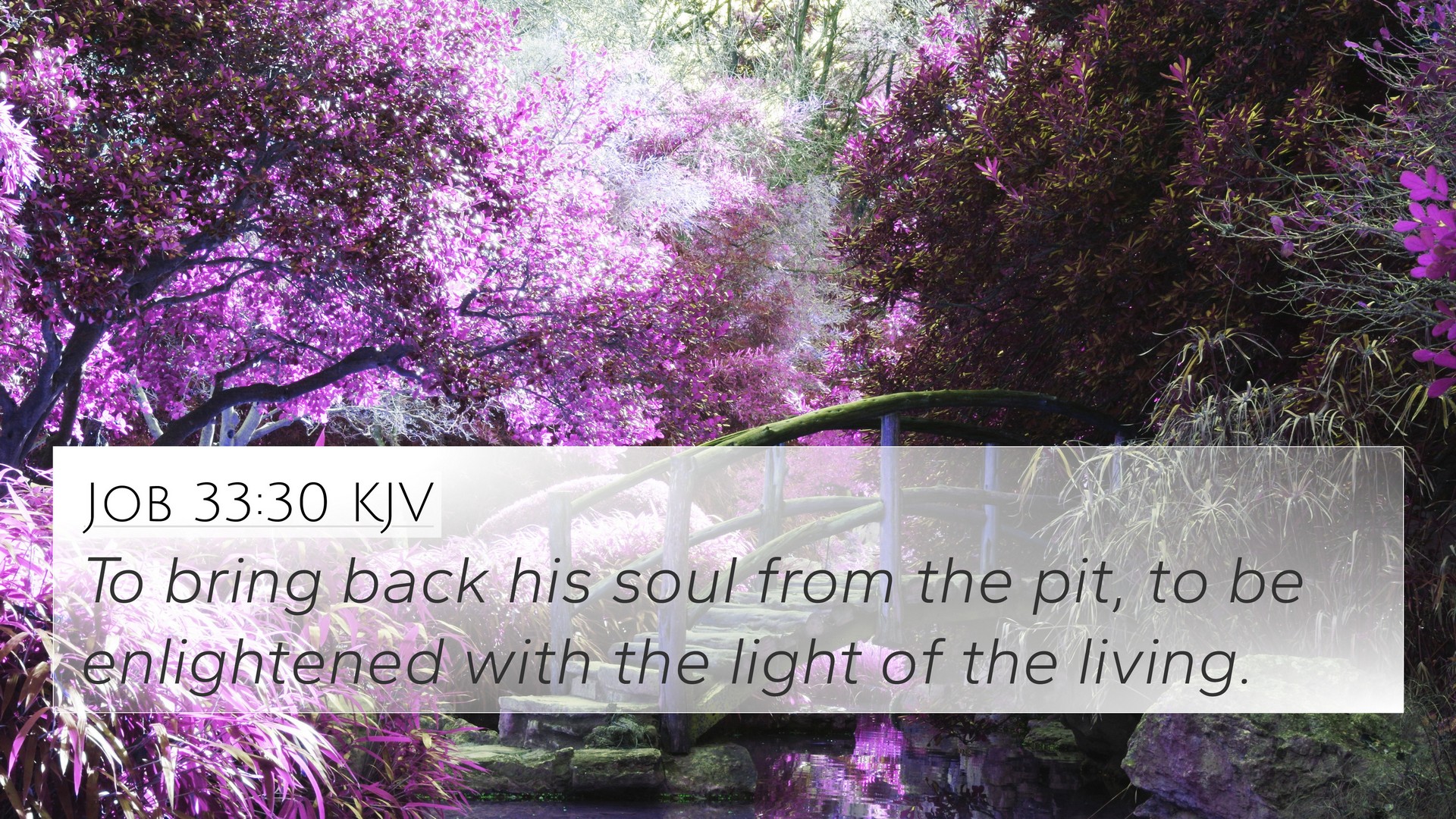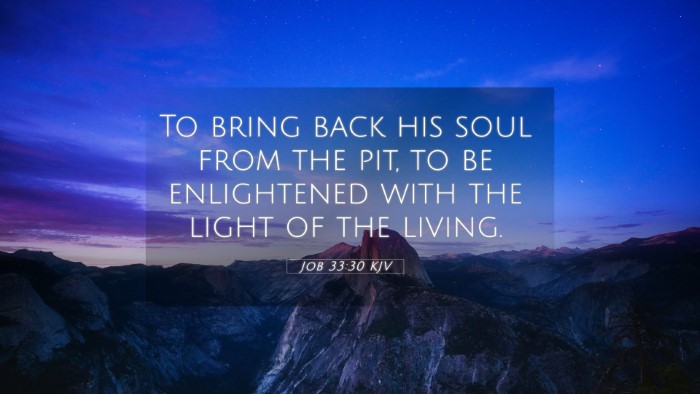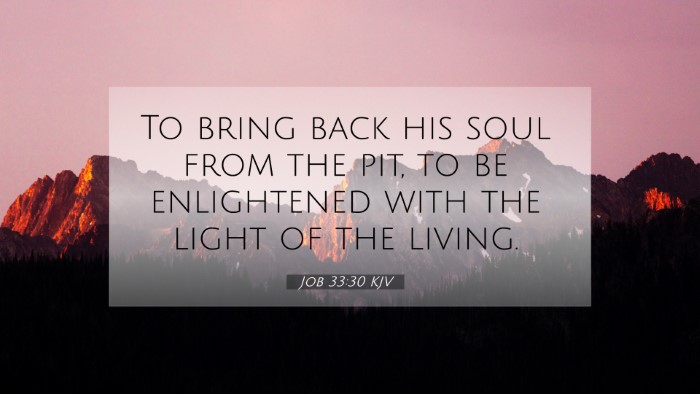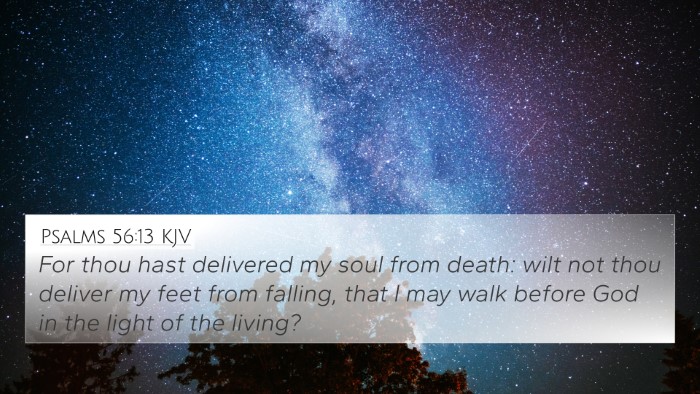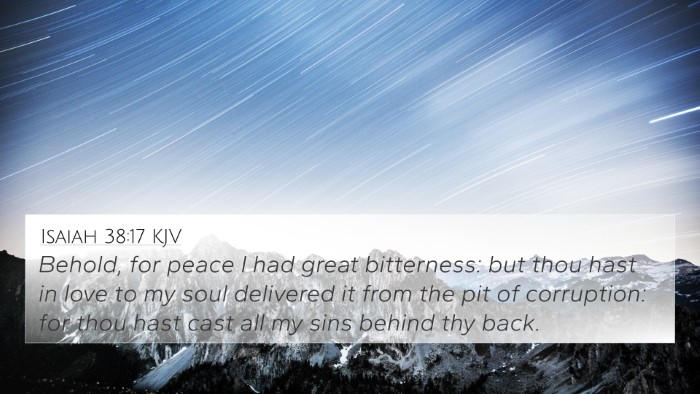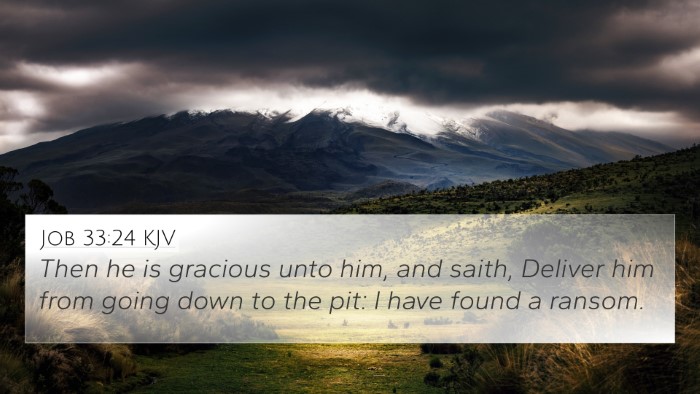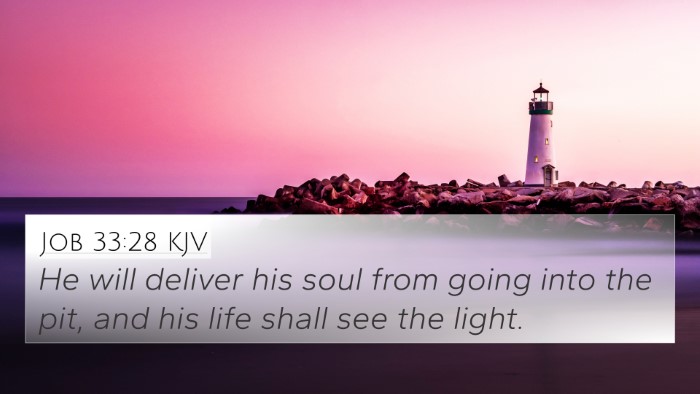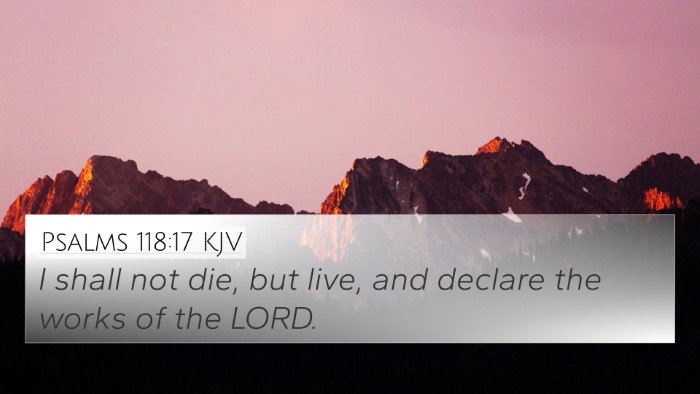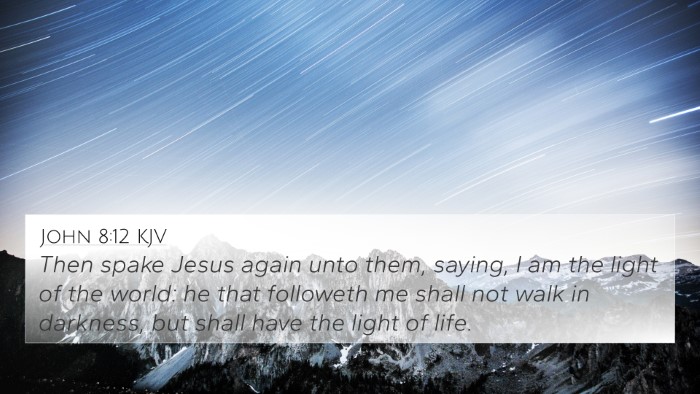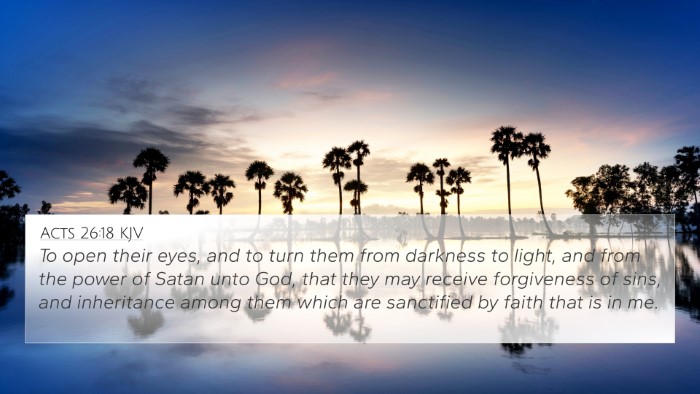Understanding Job 33:30
Job 33:30 states: "To bring back his soul from the pit, that he may be enlightened with the light of the living." This verse is a profound insight into the nature of God’s mercy and the hope for restoration, which resonates deeply through various Biblical themes and narratives.
Verse Interpretation
In this passage, Job's friends appear to miss the essence of God's intent in the midst of suffering. Elihu, in this context, focuses on the transformative power of God’s communication with humanity and His desire to restore the fallen.
Commentary Insights
- Matthew Henry: Henry elaborates on the idea that God's main concern is the restoration of the sinner. He emphasizes that divine interventions often come to save one from despair and lead them back to enlightenment and truth.
- Albert Barnes: Barnes interprets this verse as a declaration of God's gracious interventions. He suggests that when a person is rightly brought into distress by his own actions, God desires to reach even the most lost souls, bringing enlightenment and life back to them.
- Adam Clarke: Clarke points out the metaphor concerning the "pit," synonymous with destruction or death. He emphasizes the hope presented in the light of life as a motif of revival and divine restoration.
Bible Verse Cross-References
This verse connects to numerous other Scriptures, offering a comprehensive understanding of divine restoration and mercy:
- Psalms 30:3: "O Lord, you brought up my soul from the grave; you kept me alive, that I should not go down to the pit."
- Lamentations 3:22-23: "The steadfast love of the Lord never ceases; his mercies never come to an end; they are new every morning; great is your faithfulness."
- Isaiah 61:1: "The Spirit of the Lord God is upon me, because the Lord has anointed me to bring good news to the poor; he has sent me to bind up the brokenhearted..."
- Matthew 11:28: "Come to me, all you who are weary and burdened, and I will give you rest."
- John 8:12: "Again Jesus spoke to them, saying, 'I am the light of the world. Whoever follows me will not walk in darkness, but will have the light of life.'
- Romans 5:8: "But God shows his love for us in that while we were still sinners, Christ died for us."
- 2 Corinthians 5:17: "Therefore, if anyone is in Christ, he is a new creation. The old has passed away; behold, the new has come!"
- Ephesians 2:4-5: "But God, being rich in mercy, because of the great love with which he loved us, even when we were dead in our trespasses, made us alive together with Christ..."
- 1 Peter 2:9: "But you are a chosen race, a royal priesthood, a holy nation, a people for his own possession, that you may proclaim the excellencies of him who called you out of darkness into his marvelous light."
- Revelation 21:4: "He will wipe away every tear from their eyes, and death shall be no more, neither shall there be mourning, nor crying, nor pain anymore..."
Thematic Connections
Job 33:30 serves as a key verse in understanding various themes within the Bible. The motifs of divine mercy, restoration, and the transformative power of God’s light recur throughout Scripture:
- Divine Mercy: God's willingness to rescue humanity from despair.
- Restoration: The promise that even in the direst circumstances, God is at work bringing hope and renewal.
- Light vs. Darkness: The contrast between the 'light of the living' and the 'pit' illustrates the journey from spiritual death to life.
Cross-Referencing Biblical Texts
Cross-referencing Bible studies is a valuable tool to deepen one's understanding of Scriptural messages. This can be achieved by:
- Using Bible Concordance: To find similar themes and terms across different books of the Bible.
- Bible Cross-Reference Guide: Employing guides that highlight interrelated Scriptures.
- Study Groups: Engaging in discussions focusing on how various verses relate and enhance each other.
Conclusion
Job 33:30 encapsulates profound truths about God's character and His relationship with humanity. The external connections through cross-referencing not only enrich one's understanding but also enhance the interaction between themes throughout the Bible, providing a more integrated view of Scripture. By studying this verse alongside its cross-references, one can gain deeper insights into God’s unwavering commitment to bring His people back from despair into the light of His grace.
